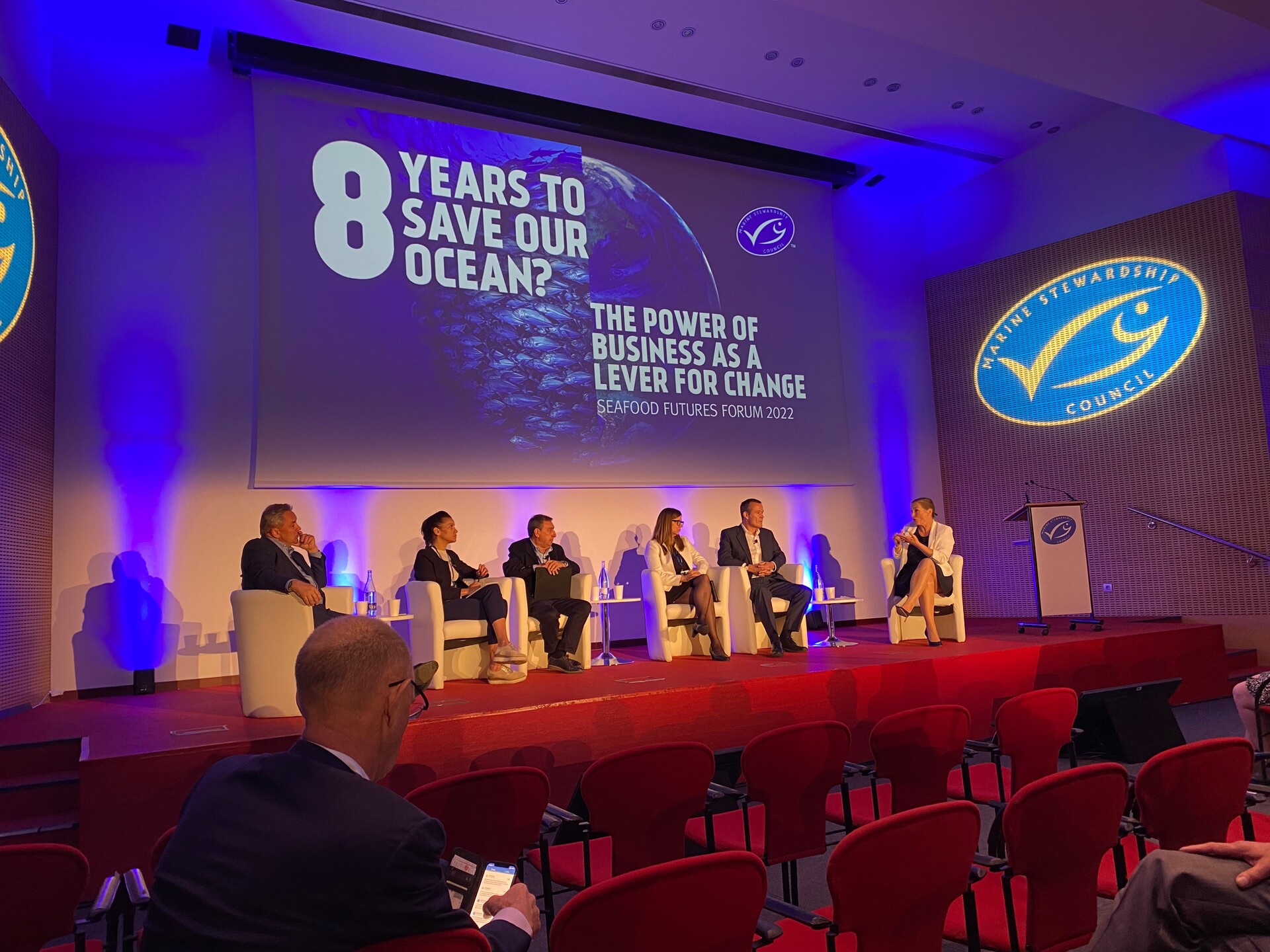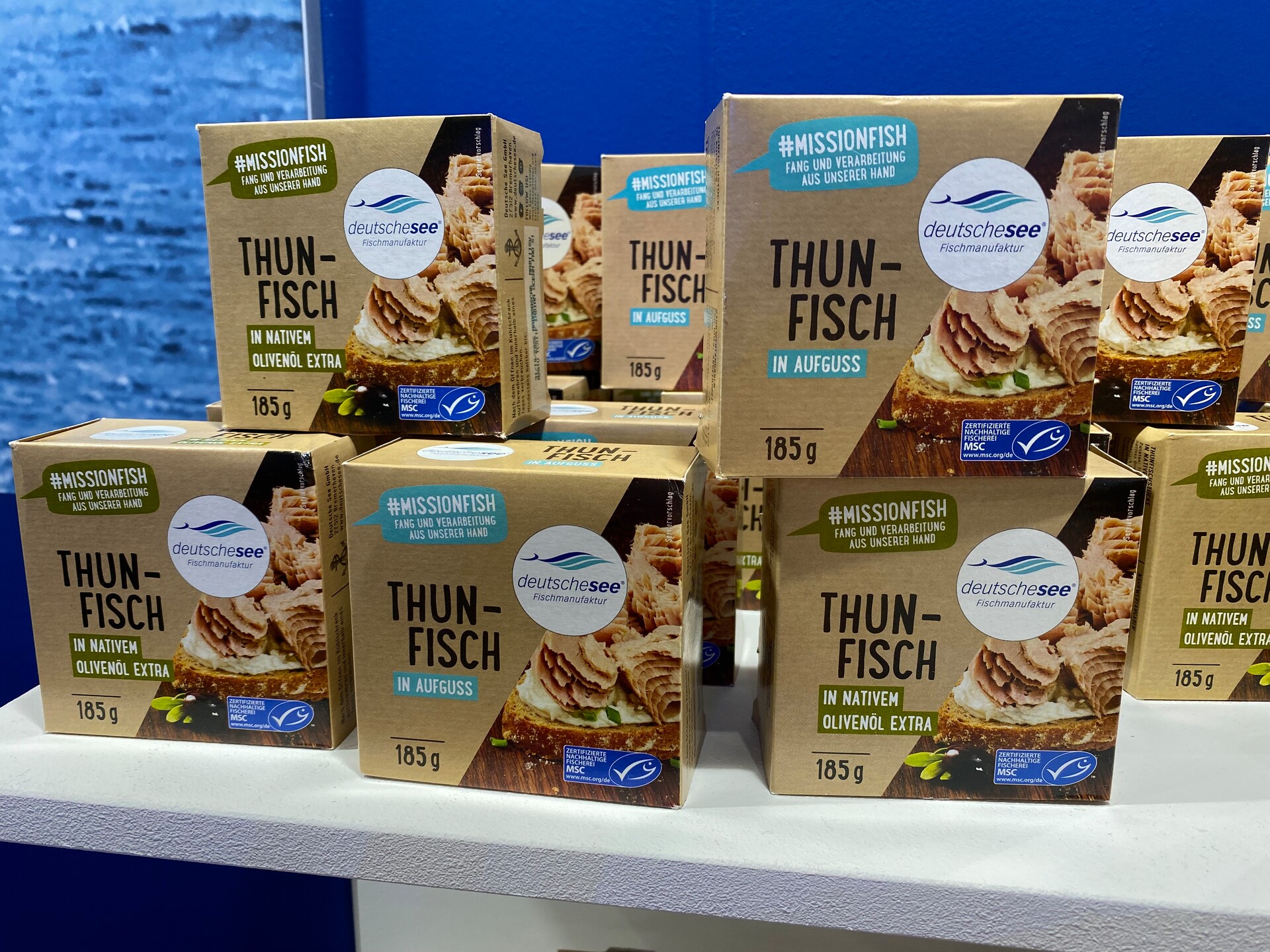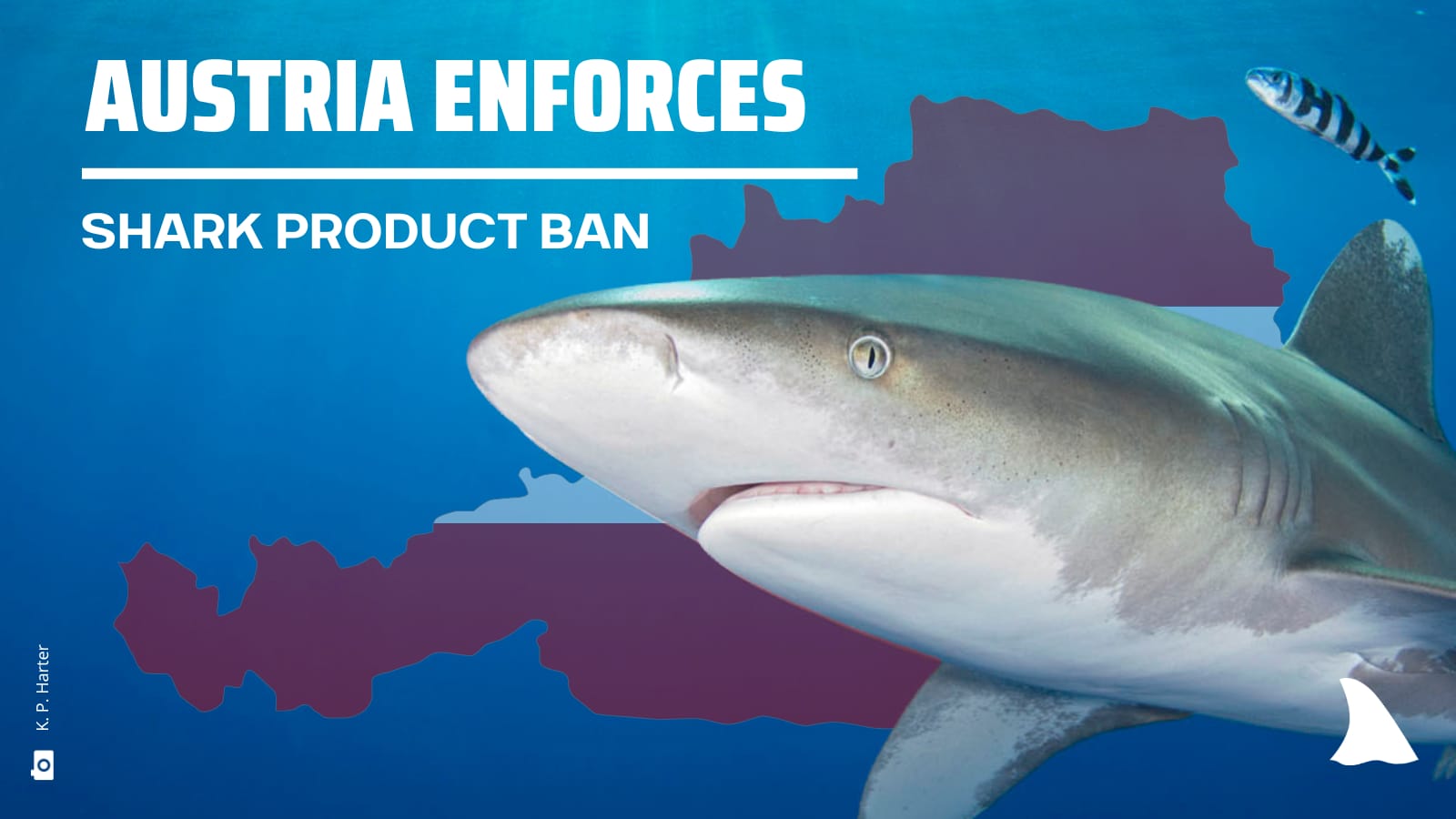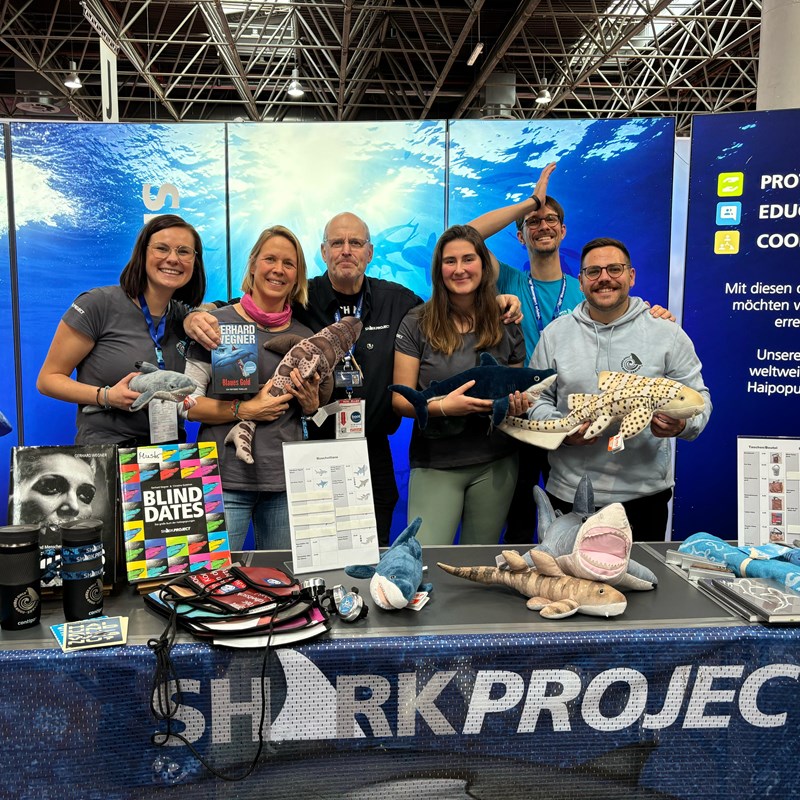

"Last Call" or the last chance for the Marine Stewardship Council & the Blue Label!
15. May, 2022
MSC & the Blue Label
Is there still a chance for the blue label to cross back from the dark side into the light, or will there be just business as usual? Certification and growth against all odds - regardless of whether a fishery is actually operating sustainable and protecting the ecosystems and endangered marine species or simply operating within legal limits"!
If this does not change substantially, the label will certainly not contribute to achieving the Sustainable Development Goals of the United Nations by 2030. "Life below water" is the objective of SDG14, and believing the PR displays[1] of MSC it appears that the organisation indeed wants to contribute to SDG14, even calls at the UN Climate Change Conference that it is time to act now.[2]
But is this really the case, and what action does MSC think about taking?
Therefore, 67 stakeholders from marine conservation, science and trade, including Greenpeace, EJF, Blue Marine Foundation, Shark Guardian, NRDC, Sea Choice, Humane Society International, but also the Swiss retailer MIGROS, one of the largest retailers in Switzerland, launched a final appeal to the MSC last week, calling on it to significantly strengthen the draft Standard in several areas and to close existing loopholes. Link to the letter as a file and there is also a summary of the specific asks at the end of this blog.
Will the MSC finally listen to the call from stakeholders?
We sincerely hope so, because without decisive improvements in the Standard, fisheries will continue to be certified as sustainable although they really do not deserve to be called sustainable, like the Spanish AGAC fleet that catches tuna in the Indian Ocean with purse seine nets and uses 4,500 drifting Fish Aggregating Devices (dFADs) as fish collectors every year. Many other marine animals die in these nets because they get entangled in the constructions of the fish collectors that are floating at sea for up to 18 months, and these animals die unnoticed by any statistics. This affects countless sea turtles, marine mammals and silky sharks. The latter are also affected as direct bycatch almost every time nets are set around these fish collectors and hauled in since juvenile silky sharks tend to aggregate under these floating rafts, as does the tuna. Thousands of juvenile silky sharks thereby die in agony under the pressure of the tons of tuna; they suffocate because they can no longer swim freely and breathe but also because available technical mitigations to quickly release them again and gently release them back into the water are not installed or used because of costs associated with such measures. It is estimated that at least 25,000 - 30,000 (approx. 500 - 600 t) silky sharks die every year in the nets of the 15 vessels of this fishery alone.
Despite massive objections against this certification and an objection filed, AGAC will most probably also get awarded with the blue label for its Indian Ocean tuna, even though the Independent Arbitrator in the objection procedure admits himself that he "cannot direct a remand because I disagree with the CAB’s score and would have scored it differently myself"[3]. He also agrees that there is little doubt that marine life is affected by industrial fishing and harmed by drifting FADs and adds that he “heard persuasive evidence about the need to protect them and their vulnerability at the hands of commercial fisheries from Dr Ziegler.” 3 In his conclusion he thereby highlights the underlying real problem of the assessments when saying, that “the Objector points to the harm done in the Indian Ocean and the CAB points in a detailed and structured way to whether the MSC standard is met” 3 and concludes that the certification body (CAB) were therefore “entitled to apply the score they gave for.” 3
This clearly demonstrates, that only if substantial improvements are made to the Standard, fisheries in the future be required to make real improvements on the water prior to being eligible for certification.
The standard review has now been ongoing for almost 5 years
Since 2017, we have been actively engaged in improving the sustainability criteria of the MSC Standard, which fisheries have to meet in order to be certified and to be allowed to carry the label "certified sustainable" on their products.
So far, unfortunately, with little success, because the MSC has categorically rejected moving forward any improvements outside of the regular review (FSR) and has allowed for equal representation of interests within its official FSR, which has been running since 2018 - although this has of course been portrayed differently by their PR team.
Now, however, this regular review of the Fisheries Standard is also coming to an end and the new version 3.0 is to be published in autumn this year.
As Sharkproject, we have participated in this from the start and have especially advocated for improvements being made with regard to the protection of endangered marine species, the reduction of bycatch, and the protection of sensitive marine habitats.
For all this, it is essential that the certification of fisheries is based on objective, i.e. independently collected, data that is truly representative of all fishing activities of a fishery and not only, as is usually the case, has been collected only on 5-10% of the total catch. Only if adequate and independent verification (by human observers and/or electronic monitoring systems on board) is available, can the true fishing operations and their impact on the ecosystem really be assessed. A sea there is still a ‘Wild West’ mentality with nobody knowing what actually happens out there. Therefore, the good old principle, of ‘in god we trust all other needs to be controlled’ should be applied!
Otherwise, what happens is what we have unfortunately experienced again and again, it is up to the assessment team (certifying body) to decide whether they are satisfied with the data provided and trust the statements made by the fisheries. However, it should be remembered that these certifiers are paid directly by the fishery that wants to be certified. Therefore, this huge extent of discretion is highly dangerous and has in the past, in combination with the weak provision set up in the Standard, repeatedly ended in fisheries being certified, even though illegal "finning" of sharks or other illegal fishing practices are known to occur. Many of these fisheries have a devastating impact on endangered marine life, such as sharks, marine mammals, seabirds, or sea turtles, which are either unintentionally or sometimes even deliberately affected by the fishing activities as “bycatch”. Nevertheless, the tuna & co. caught this way is then deemed to be from "certified sustainable catch". By the way, this also applies to cod, plaice, and shrimp from domestic bottom trawl fisheries. In EU waters, more than 40% of fishing revenues are made with this particularly harmful fishing method and the majority of the Baltic Sea and North Sea gets ploughed over every year - of course fully sustainably, since all fisheries being MSC certified.
Apologies if this may sound cynically, but it is already bad enough that most of today’s fishing operations have little or nothing to do with the traditional image of an artisanal fisherman any longer, but today’s fishing industry is the number one cause for the massive destruction of marine habitats, the increasing loss of biodiversity, global overfishing of stock, and ultimately the destruction of all of our livelihoods; nevertheless fish is sold as sustainably caught, deceiving the environmentally conscious consumer and this is really unacceptable.
It is indeed also for the sake of these consumers that we have taken such massive efforts to restore the MSC’s credibility as a gold standard for sustainable fishing, which it had once started off as. We were at workshops in London, spent days in online meetings, wrote many pages of submissions as part of the public consultations, spent nights interpreting the new draft, and kept calling for more transparency in this multi-year review process.
And what is the outcome now?
Now it is time for the final countdown, as MSC's Board of Trustees is about to decide on the final text of the new standard in June. Unfortunately, none of us has seen the final version, which they will decide about and which has been created by the MSC staff after the massive feedback and disagreement received during the last public consultation after release of the draft in February. In our submission to the public consultation on the draft Standard, also Sharkproject has called for critical improvements.
There have indeed been some good approaches in this draft, but it will be mandatory to resolve these objections to the provided draft and to close the existing loopholes in order for this label to deliver on its intent for the future and to finally do the right thing this time.
So now the clock is ticking.
Only if the required improvements are incorporated into the new standard can the label contribute to improving the state of the oceans by 2030, and all experts agree that we must not miss this UN target. By 2030, we must have achieved a transformation to full sustainability, otherwise we are at risk to lose a large number of marine species – forever. Knowing that life on earth depends on "Life below Water" this will put the survival of the blue planet and all of us at risk.
Therefore, we now made a final attempt as part of MAKE STEWARDSHIP COUNT and jointly wrote a letter to the MSC, signed by 66 environmental organisations and scientists, but also by MIGROS, one of the two largest retailers in Switzerland operating as a cooperative.
Make Stewardship Count was founded in 2018, in wake of a first letter sent to MSC calling for critical improvements to the Standard, also signed by 66 organisations. These stakeholders continue to be concerned but now also a major retailer signing on to such a letter clearly shows that concerns are even bigger today and also more widespread, including responsible retailers. These responsible retailers are no longer willing to blindly rely on the promises made by the label but stand up for the promise of sustainable seafood which they made to their customers.
-----------------
The letter of 13 May 2022 (the four demands translated into layman language)
In the letter, we jointly call on the MSC to amend the draft Standard published in February before it’s adoption by the Board of Trustees - and include improvements in four crucial areas, even if this further delays publication of the final Standard. After almost five years of review process, a few months more do not really matter, however doing the right thing this time very much does matter!
- Adequate independent verification of catches at sea must be ensured: a coverage level of 20-65% as proposed is indeed good!
Transparency, independent verification and an adequate amount of data being available are indispensable prerequisites for the assessment of fishing activities at sea. Therefore, we explicitly welcome the proposed minimum coverage level of 20-65% of fishing activities by independent observation. This could be the decisive improvement of the new Standard.
However, it is also necessary, that
- accepting lower coverage rates should not be allowed, even if lower levels are tolerated by the responsible fisheries management organisations. Especially in the high seas, 5% coverage is often tolerated by RFMOs, but this is by far too low.
- the meaning of ‘independent observation’ is clearly defined, i.e. including which methods of observation meet the requirements in terms of scope and objectivity. This is particularly important as based on different levels of risk, low risk fisheries may require less stringent monitoring while high-risk fisheries should demand even more intensive monitoring.
In this respect, we would also very much welcome reconsideration of the approach we have repeatedly put forward of classifying fisheries into different risk categories (e.g. based on fishing gear or target species), which then define the required monitoring effort. In this way, fisheries with selective fishing methods can be prevented from having to expend a great deal of effort without necessity, while the known high-risk fisheries are still not adequately monitored.
- Continuous reduction of overall bycatch and aiming to reduce bycatch of endangered species towards zero is essential and the right thing to do!
We very much welcome this proposal, however, it needs to be ensured, that
- an economic impact on fisheries of more than 10% must not be used as a legitimate excuse not to implement available best measures for bycatch reduction.
- Loopholes are not provided to avoid implementation of mitigation measures by classifying the impact on a threatened species as "negligible" or "relatively small".
Precise, scientifically sound and binding definitions are needed in all cases, to ensure that this pioneering approach will not once again be reduced to absurdity.
- We have been calling for years to implement a truly zero tolerance position against shark finning at sea!
The announced new requirement of "Fins Naturally Attached" - without any exception - as a prerequisite for certification is long overdue, but shows that MSC finally seems to listen to our long-standing demands.
For this improvement to really be effective, however, it is imperative that
- the definition of Fins Naturally Attached is improved prohibiting the removal of fins at sea completely and that this definition is transferred from the non-binding Guidance into the binding text of the Standard.
- compliance with this regulation is subject to ‘independent observation’ at sea. Only by means of adequate evidence can compliance with a “Fins Naturally Attached” policy be assessed and the likelihood of finning in a fishery be scored. For this purpose, the same minimum coverage rates for ‘independent monitoring’ should be applied as proposed for the assessment of catch and by-catch. Also, the higher the risk of finning to occur in a fishery, the more stringent the requirement for ‘independent monitoring’ and verification of compliance should be.
- Restricting the discretionary powers of the certification agencies (CABs) is imperative!
The current draft Standard once again transfers far too much power to the agencies that assess a fishery against the Standard and will ultimately decide about awarding the label to a fishery. This extent of discretion must be restricted if the new Standard is to live up to its intention of driving improvements on the water. Since these agencies are paid directly by the fisheries that want to be certified, it must be ensured
- throughout the entire Standard text, but especially in the new "Evidence Requirement Framework" or Toolbox for assessing the type and quantity of data required for verifying a fishery’s fishing operations, the extent of discretion provided to the CABs to consider management measures as adequate, define the required levels for reduction or accept the use of alternative measures must be limited substantially when assessing the impact of fisheries on bycatch and ecosystems.
Ideally, a clearly defined risk-based approach should be applied, specifying what data and which extent of data is required for different risk categories, thus reducing discretion of the assessment team.
[1] https://www.msc.org/media-centre/press-releases/press-release/seafood-experts-to-set-out-practical-steps-to-end-overfishing
[2] https://www.msc.org/media-centre/news-opinion/news/2021/12/01/hard-choices-needed-for-climate-resilient-fishing
[3] 20220421_IA_Decision_AGAC IO Objection.pdf at https://fisheries.msc.org/en/fisheries/agac-four-oceans-integral-purse-seine-tropical-tuna-fishery/@@assessments

© Dr. Iris Ziegler
8 more years to save the oceans - can we do it? But then the blue label must finally do the right thing now!

© Dr. Iris Ziegler
Just because the blue label is on products, unfortunately, does not always mean that the fish was caught using environmentally friendly fishing methods and without bycatch - quite the opposite; purse seine fisheries with fish collectors and even bottom trawl fisheries also get the blue label.


